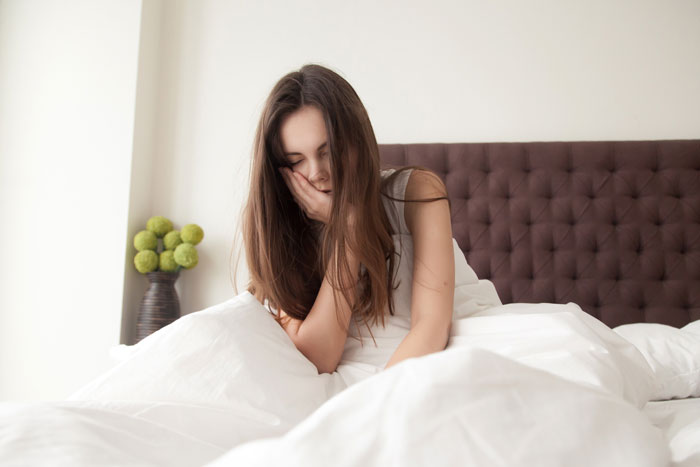
No one enjoys being woken up in the middle of the night — it disturbs your sleep cycle and leaves you feeling more tired. So how much sleep is enough sleep? Experts recommend seven to nine hours of sleep a night for adults between the ages of 26 and 64.
Although sleep is a major component of overall health and well-being, few people actually get the recommended number hours of sleep. If you’re tired of feeling…well, tired, check out the reasons why you might not be catching enough zzzs and a few effective solutions to get much-needed rest.
Reduced levels of melatonin
Melatonin is a hormone produced by the pineal gland in the brain that controls your sleep cycle, and it rises at night when it’s dark. One of the most common factors of reduced levels of melatonin is your electronic devices. The blue light emitted from electronics limits the production of melatonin, so put it on “do not disturb” before you hit the sheets!
Drinking “sleep stealers” (i.e. beverages that affect sleep)
Excess consumption of caffeine can lead to insomnia, restlessness, an irregular, fast heart rate, and muscle tensions. Additionally, alcohol before bed can cause you wake up throughout the night as your body works to digest alcohol. With that being said, try to limit the amount of caffeine and alcohol you drink before bed. It’s recommended for adults to drink a maximum of 500 milligrams of caffeine (or four cups of coffee) per day.
A-less-than-ideal sleep environment
An ideal sleeping space will have the right temperature, sound, and light. Soothing background noise has been shown to help you fall asleep including white noise, nature sounds, calming music, and voices. The suggested room temperature is between 60 and 67 degrees Fahrenheit. Temperatures that are too hot or too cold may also affect the quality of REM (rapid eye movement) sleep, the stage of sleep with the highest brain activity when you dream.
Stress or anxiety
Your weekly Zumba or HIIT class isn’t only good for great abs, it’s also the solution to any stress or anxiety that’s robbing you of sleep. Exercise boosts your sleep because it reduces stress and tires you out. Trust us, you’ll fall asleep faster after breaking a sweat.
Poor “sleep hygiene”
Establish a sleep schedule to help regulate your internal clock. For example, go to bed and wake up at the same time every day. Avoid heavy meals before bed, dim the lights, and cut any external noise. When it’s time to wake up, do not (we repeat, do not) hit snooze — open the curtains and let the natural light in instead.
xx, The FabFitFun Team




